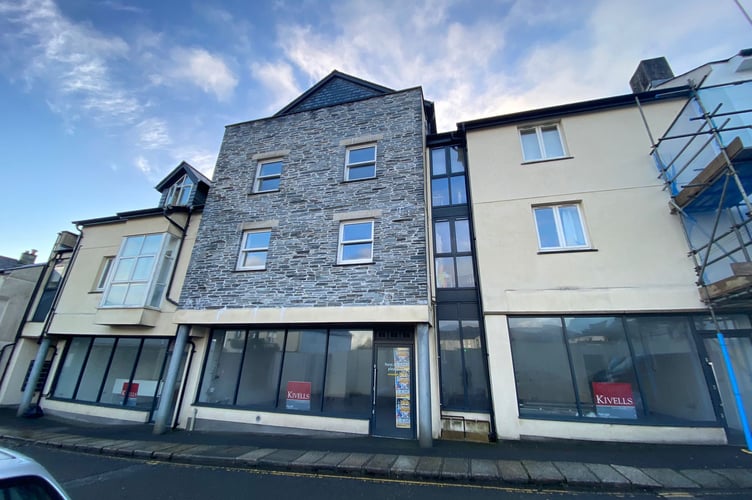Residents could soon be benefiting from a new health hub based in Launceston.
In November 2023, it was announced that Launceston Medical Centre and Tamar Valley Health GP practices would be working together to bring a new innovative Health Inequality Hub to patients within the area.
The hub is a shared initiative aiming to reduce gaps between services. It is designed to work on the prevention of health problems as well as earlier identification with support closer to home and at a community level wherever possible. The hub is also about providing holistic intervention and meaningful contacts within our community.
Now the idea is one step closer to becoming a reality as the project is only awaiting Cornwall Council’s funding.
At January’s Launceston Town Council meeting, Dr Rebecca Magill provided an update on the progress of the scheme, detailing some of its aims and why such a space is necessary.
She explained: “When you see a GP they will give you a diagnosis, asthma for example, and they’ll give you an intervention, which would be your inhaler and generally, they send you on your way.
“It turns out, even in those physical health conditions there is quite a lot of psychology in play; do you know how and when to use your inhalers? Have you had some kind of adverse experience with inhalers? Do people know how to support you? Are your friends worried about you? And this is just for asthma, you can imagine how this goes for diabetes or maternity for example.
“So, we try to work with applied bio-psychosocial: biological, psychological and social, with all of our patients from the beginning. We don’t have a triage system, patients can come directly to us, but because that’s gone via the reception team, and patients say they don’t like that, we’re going to change it so they can come directly to me.
“There’s no waiting list, there’s no inclusion or exclusion criteria, and there are flexible time slots.”
However, Dr Magill says that the problems people are facing are not going away.
She continued: “This is an area of deprivation, we’re getting more diagnosis, not less. We’re getting more mental health problems, not less.
“One-to-one work makes sense, you see the patient, they go away happily, that’s great but it’s not enough. There are 20,000 patients at our practice and there are 37,000 in the wider PCN.
“There are only so many people me and my team can see in this rapid-fire way before there becomes a problem, so I thought there needs to come to a point where we stop pulling people out of the river and treating their diagnosis and instead, we go upstream and find out why they’re falling in.”
Dr Magill decided to research, why it might be that a patient isn’t leaving the practice with their problem solved, and what outside influences could be having an effect.
“I had a look at the data and had a look at those high frequency users – which are split into two groups, those who have more than 25 appointments a year, and those who have more than 40 appointments a year.
“We had a look at patients at this practice who have had more than 25 appointments a year, and we saw that there were 15,500 appointments taken last year and that accounted for around 14% of all the appointments.
“This is why when you call up and struggle to get an appointment, it’s because ‘Bob’ up the road has had four appointments that week, and next week, and the week after. This doesn’t make ‘Bob’ a baddie, it just means that ‘Bob’s’ needs aren’t being met somewhere and we need to do something different for him – so that’s what we’re trying to do.”
Following this, Dr Magill and her team looked at ‘20plus5’, an outline set out by Public Health England, which frames the biggest health burdens in the UK – maternity, mental health, Chronic Respiratory Disease, cancer, hypertension, and smoking – which, if tackled, can reduce health inequality (the gap between the have and have not).
“We decided we would try and open a hub, away from the GP practice but still associated with the practice, which targets these groups and pulling those high frequency attendees away from the practice, to free it up to everybody else, so we can actually tackle what those people’s needs are.”
Comprised of a ‘hot desk area’, group therapy room, and a one-to-one treatment room, the new hub is set to take up residence on Exeter Street.
Dr Magill also explained that the hub will work in collaboration with other service providers, such as Volunteer Cornwall, Derriford Hospital, Cornwall Partnership, Sleep Station, and various addiction services.
However, the scheme now awaits funding (£50,000) from Cornwall Council’s Community Levelling Up Programme in order to open the hub itself.
Despite this, the team has already been out and about putting their plans into action, hosting liver screenings and checks for bloodborne viruses with patients who are currently, or have previously experienced addiction, from a van in Launceston Medical Centre’s car park.
The team have also applied for funding and were able to provide reusable sanitary products for young people.
Dr Magill explained: “Lots of children aren’t going to school because they can’t afford sanitary products, so when they get their period, they just don’t go to school. So, we opened up a ‘period bank’ and we spent the money on reusable period pants, moon cups and things you can reuse every month instead of having to buy stuff in the shop.”
While work is being carried out by the team, there is not an exact opening date for the hub at this stage.
Mayor of Launceston, Cllr Helen Bailey, is keen to welcome the programme to the town.
She told the Post: “Once open, this hub will be a huge asset to our residents; who will benefit from the extended services provided with clinics locally, this will mean reduction in travelling to Derriford for some things, support groups for specific illnesses and so much more. This can only improve their health situations.
“The hub staff developing relationships with specialists from further afield and bringing that resource to the hub can only lead to better health benefits for patients. Some of the services will be able to support patients and reduce needs for continued appointments at the medical centre.
“Dr Magill has worked tirelessly along with other colleagues to obtain funding, premises, staffing and with an enthusiasm and passion to develop this project. It was an inspiring presentation and we as a council voted, giving our full support to the project and look forward to the opening.”
What are your thoughts on the hub? Let us know: [email protected]

.JPG?width=209&height=140&crop=209:145,smart&quality=75)



Comments
This article has no comments yet. Be the first to leave a comment.